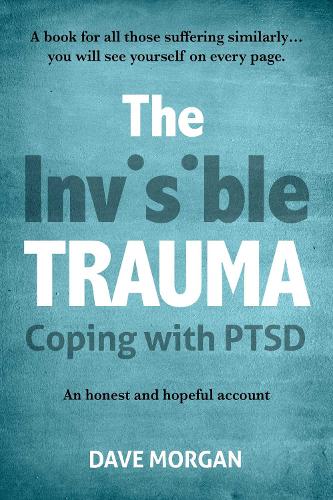
The Invisible Trauma: Coping with PTSD
(Paperback)
Publishing Details
The Invisible Trauma: Coping with PTSD
By (Author) David Morgan
Big Sky Publishing
Big Sky Publishing
1st June 2022
Australia
Classifications
Non Fiction
616.8521
Physical Properties
Paperback
348
Width 153mm, Height 230mm
Description
In any war the health of a fit soldier can drastically change in an instant and so it was for the men and women in the Vietnam war. While the consequences of major physical injury from a high velocity gunshot wound or from shrapnel from an exploding anti-personnel mine or from the explosive effects of an artillery shell or mortar were obvious, the effects of psychological injury were not.
Adverse psychological effects resulting from war have been known for many years and labels such as Shell Shock or Battle Fatigue were applied. However since the Vietnam experience and subsequent research, those adverse psychological effects are now known as Post Traumatic Stress Disorder. PTSD can result from experiencing a near death incident, or the violent injury or death of a mate or from treating the major wounds of battle casualties. A high percentage recover from the acute effects of psychological injury but for many, the experience may be the start of a chronic disorder that can affect the well-being of sufferers for the remainder of their lives.
Dave Morgan gives a detailed and clear account of his battle with PTSD. He describes his traumatic experience in Vietnam and how PTSD gradually emerged after his return to Australia. He experienced negative thinking, confusion, intense anger, alcohol abuse, and thoughts of suicide. This caused great distress. He expresses his experience and that of his family frankly and opens a window to understanding the problems of a man suffering from PTSD. In this he has made a valuable contribution and his book adds value to those who are interested in this chronic disorder.
There is no completely effective treatment for PTSD, but people like Dave Morgan are doing all they can to reach that goal.
Author Bio
Dave Morgan was born in Melbourne in 1948. He, his twin Don, older brother Gerald and sister Sybil (Patsy) were raised single-handedly by their mother, Sybella, widowed when husband Gerald (Gus) died suddenly during her pregnancy with the twins. With a childhood filled with many moves due to Sybellas ill heath and her need to find work, Dave found adventure and a taste for travelling. He joined the Citizens Military Force in his sub-senior year and took private flying lessons, eventually joining the Army at the end of the school year. On 1 January 1969, he left his family in Brisbane for Vietnam as part of the 104 Signal Squadron. During his term, he served at several fire support bases and dealt with attacks by the Viet Cong. During one of those attacks, his pit hole engulfed him, and after he returned to an unsympathetic Australia, he started reliving that experience night after night. He hid it well from all but his family wife Deb and children David and Michelle. They moved around Queensland for Daves job as a Technical Officer (Weather Observer) for the Australian Bureau of Meteorology, but his desire for isolation led him to expeditions at Macquarie Island and Davis Station. A few hours after he arrived at Casey Station for his next expedition, he slipped on blue ice and his severe head and neck injury forced a medivac back to the mainland. Now retired, Dave is seeking treatment for his Post Traumatic Stress Disorder, which Antarctica finally made him acknowledge he had it.
